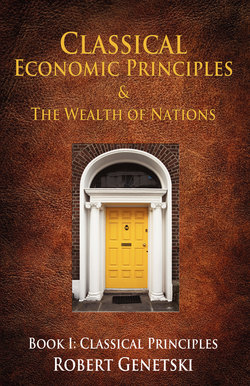Читать книгу Classical Economic Principles & the Wealth of Nations - Michael Ashley - Страница 3
На сайте Литреса книга снята с продажи.
ОглавлениеOrigins of Classical Thought
We hold these truths to be self-evident, that all men are created equal, that they are endowed by their Creator with certain unalienable rights, that among these are life, liberty and the pursuit of happiness.—US Declaration of Independence
The term classical means different things to different people. To many, it refers to a specific period of time. People, ideas and accomplishments from that era are all painted with the same classical brush.
My use of the term is different. While the essence of classical thought emerged more than two centuries ago, many of the ideas and implications have since been developed and refined. What makes the ideas classical is not the era they came from but their very nature. They are classical because they are so basic and so fundamental that they are timeless.
Liberty and freedom form the basis for classical principles
Classical thought stems from a belief in the rights of mankind to liberty and freedom. The 17th century English philosopher John Locke traced these rights to their Judeo-Christian roots. Locke argued that God gave each man and woman equal rights to liberty and freedom.1 Since these rights come directly from God, no person or government can take them away.
Locke’s view ran counter to the tide of history. Throughout history people with wealth and power have tried to dictate how others should live. The Founders of the United States rejected this concept. They studied Locke’s arguments and agreed that individuals had God-given rights to liberty and freedom.
First and foremost, liberty implies freedom from an oppressive authority. But true freedom involves something more. It means that individuals are free to pursue their own self interests, so long as doing so does not harm others. The Founders took the concepts of liberty and freedom and used them as the foundation for what became the greatest and wealthiest nation on earth—the United States of America.
Early classical economists and those who followed their path began with the premise that all individuals have an inherent right to liberty and freedom. They studied history in an effort to understand how people responded to particular circumstances. They observed human nature and how people tended to behave.
Both human nature and man’s inherent right to liberty and freedom form the basis for classical economic principles. Since neither of these precepts change over time, ideas based on them are universal. They apply to all people at all times.
